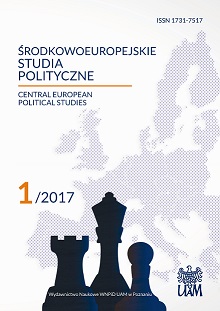Podobieństwa i różnice w zwalczaniu bojowników kaukaskich w okresie sprawowania władzy przez Borysa Jelcyna i Władimira Putina w Federacji Rosyjskiej
Similarities and differences in combating Caucasian militants during the exercise of power by Boris Yeltsin and Vladimir Putin in the Russian Federation
Author(s): Jarosław KardaśSubject(s): Security and defense, Military policy, Comparative politics, Studies in violence and power
Published by: Uniwersytet Adama Mickiewicza
Keywords: Russian Federation; Islamic terrorism; North Caucasus; Boris Yeltsin; Vladimir Putin; Ramzan Kadyrov;
Summary/Abstract: Analyzing the policy of the Russian Federation to the terrorist threat originating from the North Caucasus, it is clear that for many years Moscow has not established a coherent approach to solving this problem. In the last decade of the 20th century, Russia’s policy consisted primarily in responding to the emerging crises. This policy led to the defeat in the first Chechen war and contributed to increased instability in the whole region of the North Caucasus. At the beginning of the 21st century, Russia changed its strategies to combat terrorism rooted in the North Caucasus. Moscow began to implement the so-called Chechenization policy, assuming that the representatives of the Caucasian nations would fight the terrorists themselves.
Journal: Środkowoeuropejskie Studia Polityczne
- Issue Year: 2017
- Issue No: 1
- Page Range: 85-99
- Page Count: 15
- Language: Polish

